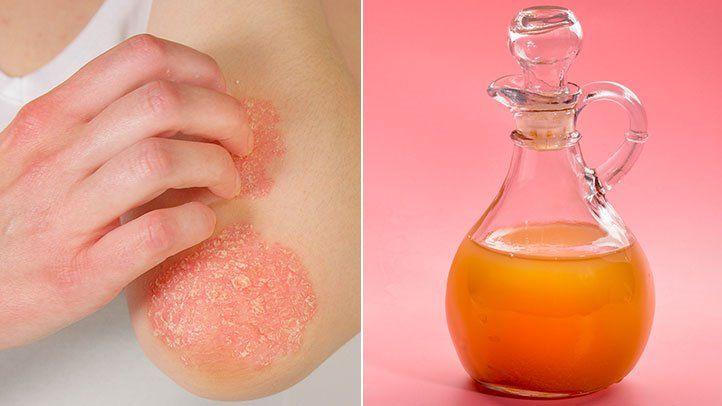
Apple Cider Vinegar for Acne Nature’s Skin-Soothing Treatment
Acne is a common skin condition that affects millions of people worldwide. While various treatments are available, some individuals seek natural remedies to address acne concerns. One such remedy that has gained popularity is apple cider vinegar (ACV). In this comprehensive article, we will delve into the potential benefits, safety precautions, and application methods of using apple cider vinegar for acne.
Understanding Acne
Before delving into the specifics of apple cider vinegar, it’s essential to understand acne’s nature and causes. Acne typically occurs when hair follicles become clogged with oil and dead skin cells, leading to the formation of pimples, blackheads, and whiteheads. Various factors contribute to acne, including hormonal fluctuations, genetics, diet, and skincare habits.
The Appeal of Apple Cider Vinegar
Apple cider vinegar, a fermented apple juice, has been touted as a natural remedy for numerous health and skincare issues. It contains acetic acid, probiotics, enzymes, vitamins, and minerals that may offer various health benefits. When it comes to apple cider vinegar for acne, it has potential advantages lie in its anti-inflammatory, antimicrobial, and exfoliating properties.
Anti-Inflammatory Properties
Inflammation plays a crucial role in the development and aggravation of acne. Apple cider vinegar’s anti-inflammatory properties may help reduce redness, swelling, and discomfort associated with acne lesions. It can also soothe irritated skin, making it an appealing option for those with sensitive or inflamed acne-prone skin.
Antimicrobial Effects
Apple cider vinegar for acne possesses antimicrobial properties that can combat acne-causing bacteria, particularly Propionibacterium acnes (P. acnes). By inhibiting the growth of these bacteria, ACV may help prevent new acne breakouts and contribute to clearer skin.
Exfoliation and Skin Renewal
The natural acids in apple cider vinegar, such as alpha hydroxy acids (AHAs), can exfoliate the skin’s outer layer. This gentle exfoliation process can help remove dead skin cells and unclog pores, reducing the likelihood of acne formation. Additionally, it may promote skin renewal, leading to a healthier complexion.
Using Apple Cider Vinegar for Acne
While apple cider vinegar shows promise as a natural acne remedy, it’s crucial to use it safely and effectively. Here are some tips on incorporating ACV into your skincare routine:
- Dilute It
Undiluted apple cider vinegar is highly acidic and may cause skin irritation or chemical burns. To use it safely, dilute it with water in a 1:3 or 1:4 ratio. Start with a lower concentration and adjust as needed based on your skin’s sensitivity.
- Patch Test
Before applying apple cider vinegar to your entire face, conduct a patch test. Apply the diluted mixture to a small area of your skin and wait for 24 hours to check for any adverse reactions. If irritation occurs, discontinue use.
- Choose Organic, Unfiltered ACV
Opt for organic, unfiltered apple cider vinegar with the “mother.” The “mother” is a colony of beneficial bacteria and enzymes that contribute to the benefits of apple cider vinegar for acne.
- Use as a Toner
One common method is to use apple cider vinegar as a toner. After cleansing your face, apply the diluted ACV mixture using a cotton ball or pad. Let it dry before applying your moisturizer or any other skincare products. Start with a once-daily application and monitor your skin’s response.
- Spot Treatment
For targeted acne spots, you can apply a more concentrated solution of ACV using a cotton swab. Be cautious and avoid applying it to open wounds or broken skin.
- Gradually Increase Frequency
If your skin tolerates apple cider vinegar well, you may gradually increase its frequency of use. However, remember that less is often more when it comes to skincare, especially for sensitive skin.
- Moisturize and Protect
ACV can dry the skin. To counteract this effect, follow up with a moisturizer suitable for your skin type. Additionally, always apply sunscreen during the daytime to protect your skin from UV damage, as some acids in ACV can make your skin more susceptible to sunburn.
Realistic Expectations
While apple cider vinegar for acne can be a valuable addition, it’s essential to manage your expectations. ACV may not provide overnight results, and its effectiveness can vary from person to person. Some individuals may experience significant improvements in their acne, while others may see only minor changes.
Combining apple cider vinegar with other proven acne treatments, such as gentle cleansers, salicylic acid or benzoyl peroxide products, and consistent skincare routines, can enhance its efficacy.
While apple cider vinegar for acne is generally safe for most people when used appropriately, there are some potential side effects and precautions to consider:
Skin Irritation: Undiluted ACV or overuse can lead to skin irritation, redness, and a burning sensation. Always dilute ACV before applying it to your skin.
Allergic Reactions: Some individuals may be allergic to apple cider vinegar. If you experience itching, hives, or a rash, discontinue use and consult a dermatologist.
Chemical Burns: Prolonged or excessive use of undiluted ACV can result in chemical burns, which can be painful and require medical attention.
Photosensitivity: Some acids in ACV can make your skin more sensitive to sunlight. Always use sunscreen during the daytime when using ACV.
Eye Contact: Avoid contact with the eyes, as ACV can cause irritation and discomfort.
Olfactory Sensitivity: The strong odor of ACV may not be pleasant to everyone. Consider this when using it in your skincare routine.
Conclusion
Apple cider vinegar for acne is a natural remedy that holds promise for individuals seeking an alternative approach to managing acne. Its anti-inflammatory, antimicrobial, and exfoliating properties make it a potential ally in the fight against acne. However, it’s crucial to use ACV with caution, following proper dilution and skincare practices to avoid adverse effects.
Remember that skincare is a highly individualized journey, and what works for one person may not work the same way for another. If you’re considering using apple cider vinegar for acne, consult with a dermatologist or skincare professional to determine the best approach for your specific skin type and condition. With patience, diligence, and a well-rounded skincare routine, you can work towards achieving clearer and healthier skin.






